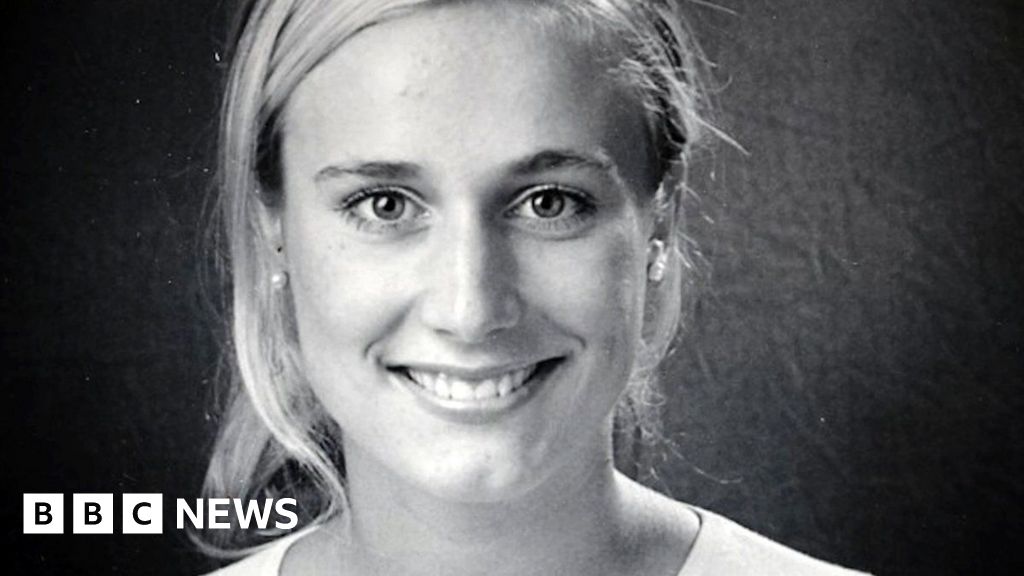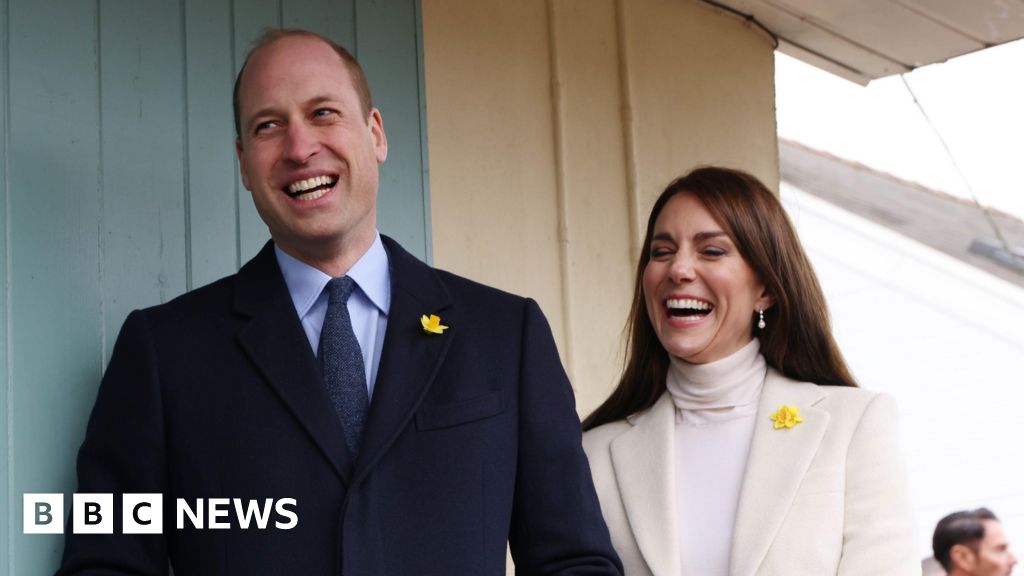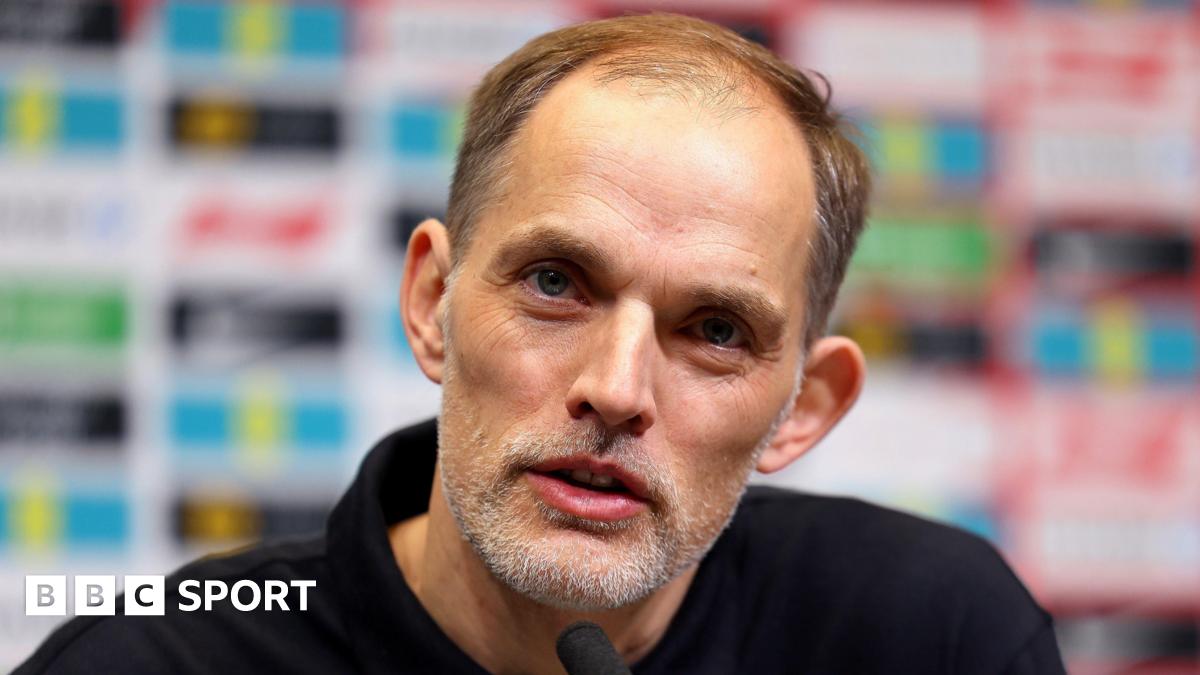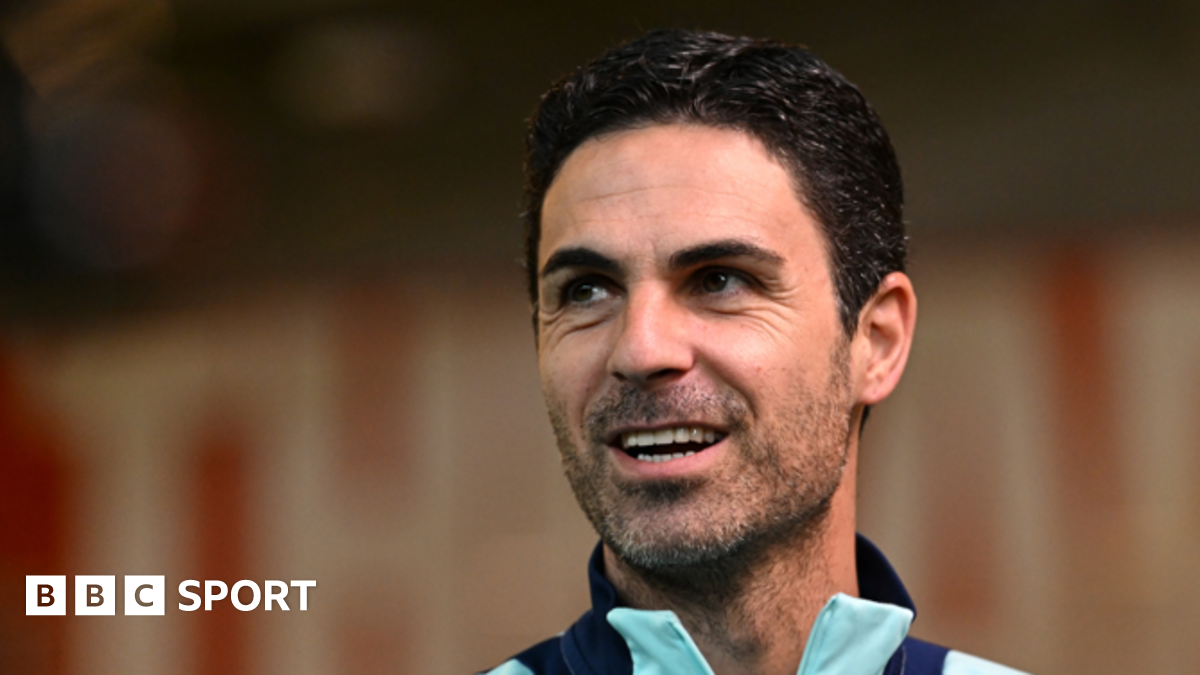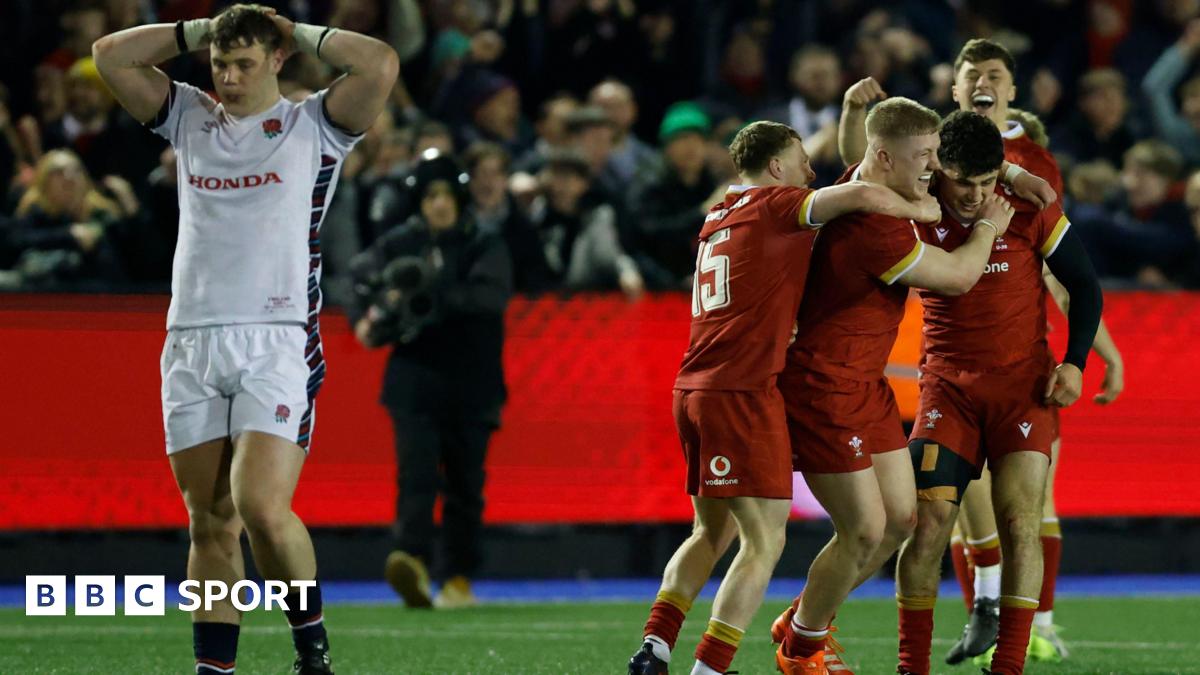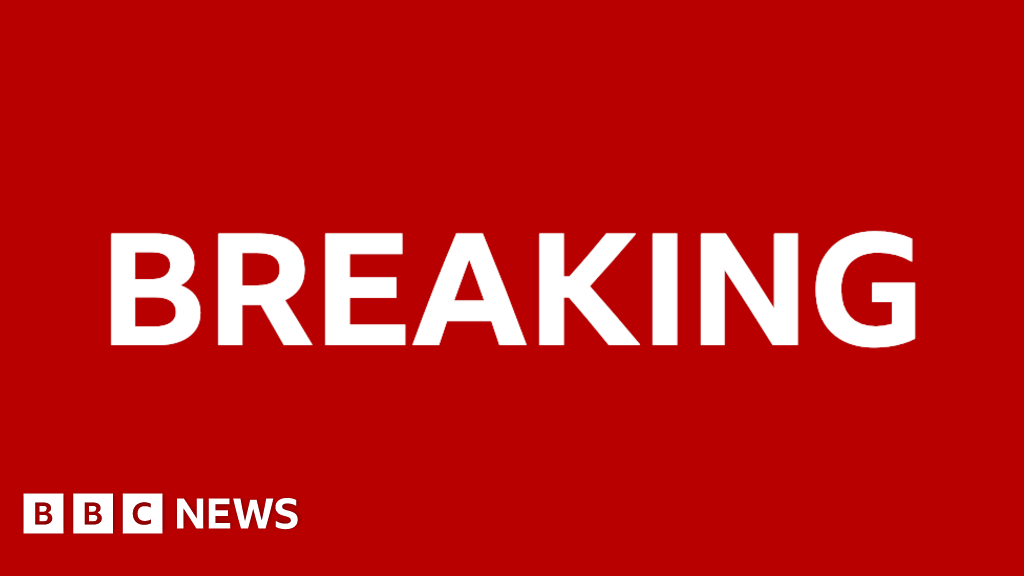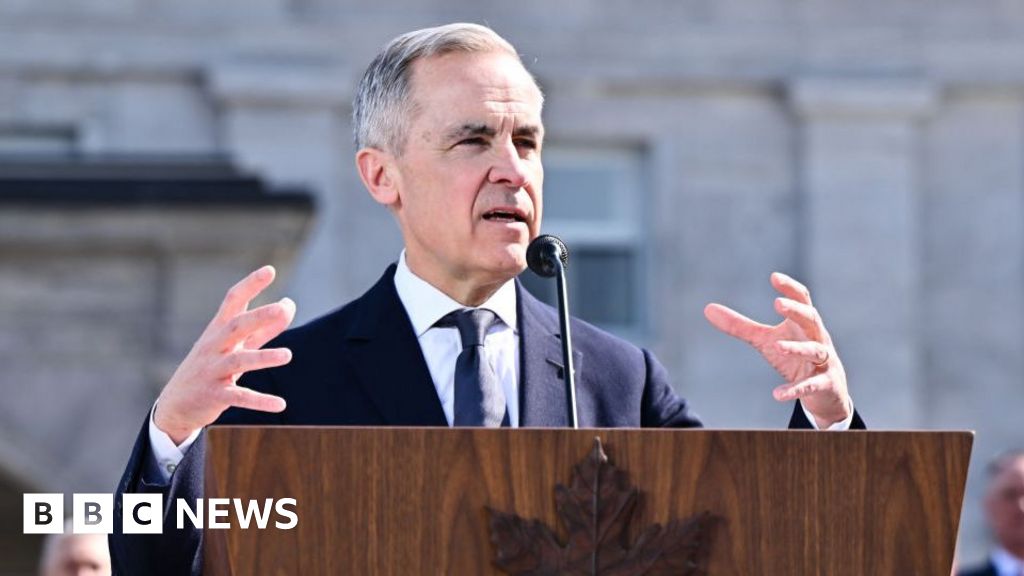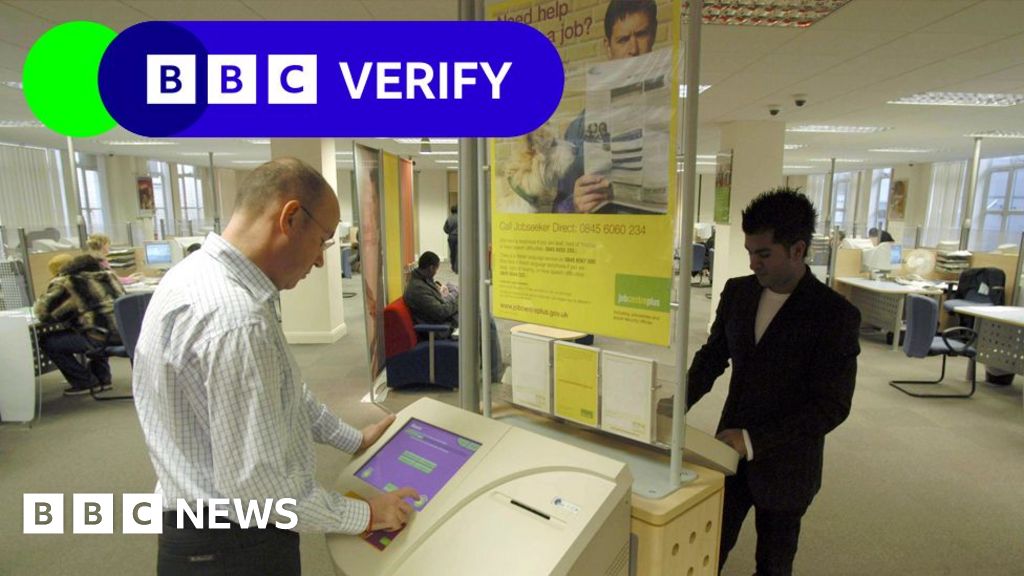
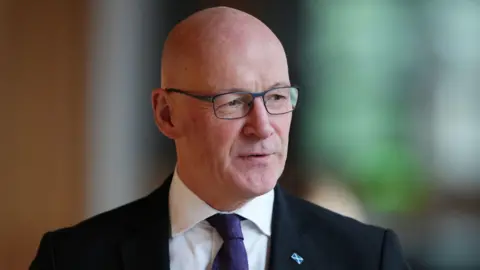 PA Media
PA Media
John Swinney will unveil his Programme for Government on Wednesday
John Swinney believes the Scottish government can still “enhance the lives of children and their families” ahead of setting out its spending plans for the next 12 months.
The first minister’s inaugural Programme for Government will make eradicating child poverty its “single greatest priority” when it is unveiled on Wednesday.
The latest figures show the number of children living in relative poverty in Scotland sitting at 26%, despite targets to reduce that number below 18% by the end of the current financial year.
It comes in the wake of Mr Swinney’s finance secretary, Shona Robison, announcing a £500m package of cuts in order to balance the government’s books.
The spending blueprint will be the first put forward by Mr Swinney since he took over as first minster from Humza Yousaf in May.
Reducing the number of children living in poverty was one of his key pledges when he became leader of the SNP.
He pointed to the introduction of the Scottish Child Payment in 2021 – which is payable to the families of each child under 16 living in a low-income household – as an example of the government’s efforts to combat the issue.
Campaigners said the “scale and pace” of the action on lifting young people out of poverty has “not been nearly enough”.
The Scottish government’s own legal targets aim to reduce the numbers to 10% in the 2030-31 financial year.
But Mr Swinney said he would double down on prioritising measures to meet those goals.
“Even as we face unprecedented budgetary constraints, I am optimistic that we can still greatly enhance the lives of children and their families,” he said.
“No one's opportunities should be determined by the circumstances they are born into, which is why this year's Programme for Government will prioritise measures focused on our single greatest priority of eradicating child poverty.
"We already have a strong track record of improving the lives of children across Scotland, including through our game-changing Scottish Child Payment and expansion of early learning and childcare. This government's policies are estimated to keep 100,000 children out of relative poverty this year."

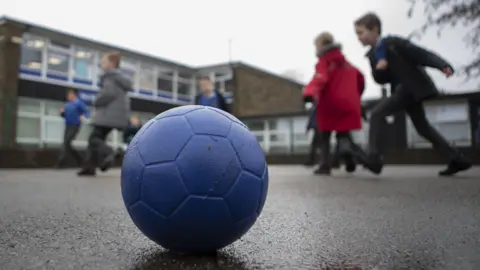 PA Media
PA Media
The Scottish government has a legal target to reduce the rate of child poverty below 18% by the end of the financial year
Mr Swinney also cited figures from the Child Poverty Action Group (CPAG), which state low income families in Scotland will be £28,000 better off by the time their child turns 18, compared to others across the UK.
CPAG’s Scottish director, John Dickie, said progress had been made on tackling child poverty, but said greater investment in public services was needed to hit the statutory targets.
He said: “The tough reality facing government and opposition alike is that there is no credible route to eradicating child poverty that doesn’t involve further serious investment in social security, childcare, affordable family housing and action to support parents access decent jobs.
“More can and must be done to reform public services so that hard up families can access them, but those services need to be available and adequately funded in the first place.”
'Flagship pledges missed'
Ms Robison told the Scottish Parliament the country was facing "enormous and growing" financial pressure during her statement on Tuesday.
She cited public sector pay deals, "prolonged" Westminster austerity, inflation, the pandemic and the war in Ukraine before announcing plans to cut £188m across government departments.
A further £65m is to be saved from the reintroduction of peak rail fares, axing concessionary travel for asylum seekers and granting local authorities power to finance pay deals by drawing on funds from existing programmes.
Meanwhile, up to £60m will be saved through emergency spending controls imposed on government departments relating to recruitment, overtime, travel and marketing, while £460m would be drawn down from the ScotWind leasing auction of seabed plots for offshore wind projects.

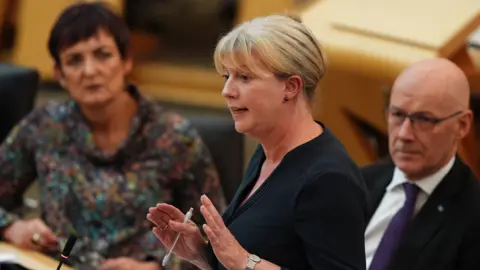 PA Media
PA Media
Shona Robison announced £500m worth of planned spending cuts on Tuesday
Despite those cuts, Mr Swinney said his spending outline would include "investment in public services, growing the economy and tackling climate change.”
But Scottish Labour leader Anas Sarwar said the SNP had “ripped up its flagship pledges” and called for an end to “17 years of broken promises”.
“NHS waiting lists are at a record high, the attainment gap is widening in our schools, our justice system is at breaking point and SNP financial chaos means more cuts are looming."
Scottish Conservative Liz Smith said the independent Scottish Fiscal Commission had made "abundantly clear" that much of the financial pressure came from the Scottish government's own decisions.
She said Scotland was losing out on £624m in revenue because its economy is growing at a slower rate than the UK as whole.
Scottish Liberal Democrat leader, Alex Cole-Hamilton, said Mr Swinney’s party had “repeatedly” taken Scotland for granted.
Meanwhile, Lorna Slater, co-leader of the Scottish Greens, said it was Mr Swinney's "last chance" to save his government's climate credentials.
“We need to see a clear commitment to our environment," she said.


Analysis: Optimistic Swinney has little cash for required investment
John Swinney would dearly love to make a big splash with his first Programme for Government as first minister, to reset the record after a damaging election result in June.
But he has precious little cash on hand to do it, underlined by his finance secretary announcing half a billion pounds worth of cuts yesterday.
Mr Swinney will focus on what has been his top priority since he became first minister – eradicating child poverty.
A lot of money has already been committed to measures like the Scottish Child Payment, but the SNP leader says he is optimistic that more can still be done.
That is backed up by the data when you consider that overall levels of child poverty in Scotland have not fallen.
Ministers often repeat that 100,000 children have been kept above the breadline by their policies, and the child payment is frequently lauded by charities.
But with the total figure remaining stubbornly static, there may need to be further investment in similarly striking policies if Mr Swinney’s goal is to be achieved.



 6 months ago
19
6 months ago
19
